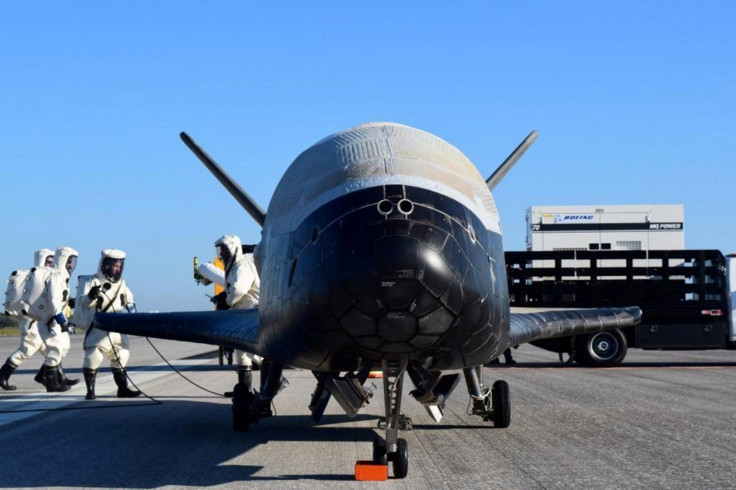Hurricane Irma could delay SpaceX launch of US Air Force's mysterious X-37B space plane this week
The air force said thick clouds have increased the chances of scrubbing the launch to 50%.

Hurricane SpaceX is scheduled to launch the US Air Force's Boeing X-37B space plane to orbit aboard its Falcon 9 rocket on Thursday (7 September) from the Kennedy Space Centre's launch pad 39A in Florida. However, Hurricane Irma, which is making its way towards Florida, could potentially delay the mysterious launch.
Although Irma is not likely to hit Florida until later this week, the air force said thick and cumulus clouds have increased the chances of scrubbing the launch to 50%.
"Hurricane Irma is forecast to be approximately 950 miles southeast of the Spaceport during Thursday's launch attempt, so while Irma certainly bears watching, it will not be a factor in Thursday's weather," forecasters said on Tuesday. If the launch is delayed to Friday, Irma will be more than 300 miles closer and launch probabilities will further drop to 40%.
"The primary concerns for Friday remain thick and cumulus clouds, with the addition of liftoff winds, particularly later in the launch window," the forecast reads.
The mission will be the fifth one for the X-37B Orbital Test Vehicle (OTV) and its first launch aboard SpaceX's Falcon 9. The four previous X-37B missions were launched aboard United Launch Alliance's Atlas V rockets.
The military said the mission "carries small satellite ride shares and will demonstrate greater opportunities for rapid space access and on-orbit testing of emerging space technologies".
"Building upon the fourth mission and previous collaboration with experiment partners, this mission will host the Air Force Research Laboratory Advanced Structurally Embedded Thermal Spreader payload to test experimental electronics and oscillating heat pipe technologies in the long duration space environment," the air force said in a release last week. "The fifth OTV mission will also be launched into, and landed from, a higher inclination orbit than prior missions to further expand the X-37B's orbital envelope."
The exact purpose and function of the 11,000 pound X-37B in low-Earth orbit, however, is classified.
In June, military officials announced that the fifth X-37B flight would be launched with SpaceX.
"The ability to launch the Orbital Test Vehicle on multiple platforms will ensure a robust launch capability for our experiment designers," said Randy Walden, director of the Air Force Rapid Capabilities Office, said in a statement in June. "We are excited about this new partnership on creating flexible and responsive launch options and are confident in SpaceX's ability to provide safe and assured access to space for the X-37B programme."
Last week, SpaceX successfully conducted a static fire test on the Falcon 9 rocket to be used for the launch. The Elon Musk-owned company is expected to recover the rocket's first stage at Landing Zone-1 at Cape Canaveral Air Force Station a few minutes after liftoff and create a powerful sonic boom.
The air force has two Boeing X-37B space planes that have completed four missions so far and logged a collective total of 2,085 days in orbit. The secretive spaceplane made a surprise landing at the Kennedy Space Centre on 7 May after spending a record-breaking 718 days in space.
"The many firsts on this mission make the upcoming OTV launch a milestone for the program," Air Force Rapid Capabilities Office Director Randy Walden said. "It is our goal to continue advancing the X-37B OTV so it can more fully support the growing space community."
The launch time for the fifth mission has yet to be announced. However, Florida Today reports that a Federal Aviation Administration notice issued to aviators noted that the airspace would be closed between 9:20am and 2:55pm.
© Copyright IBTimes 2025. All rights reserved.





















